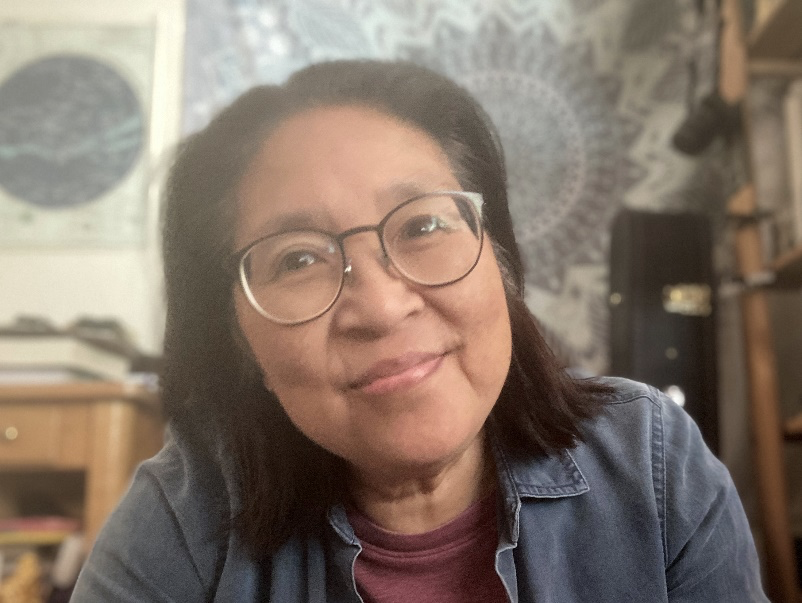Maria Linsao, LMFT
Licensed Marriage & Family Therapist
Offering Individual and Couples Therapy for Adults
License #140587
How I Can Help
I can help to unravel those complex parts of your life that are difficult to feel into, think about, or talk about. As a Queer woman of color, I know what it is like to be “different,” and feel vulnerable. During times of uncertainty, when “not knowing” can feel confusing, scary, and lonely, I can help create a space for us to explore and process what may be unresolved grief or trauma. Together we can co-create a safe and collaborative healing space, and learn to celebrate the essence of our uniqueness.
Licensed and Experienced
I am a licensed psychotherapist and an ordained Zen Buddhist priest.
I graduated with an MA in integral counseling psychology from the California Institute of Integral Studies, in San Francisco. My training included practicing as an associate therapist for two years at the James Whitney Clinic of the Jung Institute in San Francisco, and at Earth Circles Counseling Center in Oakland. I also have experience working as a high school counselor at a charter school in East Oakland.
My work as a chaplain at St. Francis Memorial Hospital and as a hospice worker with Zen Hospice also informed my decision to ordain as a Zen Buddhist priest.
Educational Background
M.A. in Integral Counseling Psychology, California Institute of Integral Studies
San Francisco Zen Center ordained priest
James Whitney Clinic, Jung Institute of San Francisco
Earth Circles Counseling Center, Oakland
St. Francis Memorial Hospital
Zen Hospice
Specialties
I offer support to individuals in different stages of life transition, which includes exploring their:
spiritual values and experiences
relationships
the impact of grief, in its various manifestations
I also specialize in working with couples/partners. This can look like adults who are in significant relationships, as friends, as lovers, or as married partners. There are myriad factors that affect and impact each of us both personally and collectively. Together we can explore how best to navigate the ebbs and flows inherent in your relationships.
Both the practice of psychotherapy and Zen Buddhism can be seen as healing arts, alternative forms of medicine that can help transform various symptoms of pain, manifesting in unhealthy, hurtful, or even harmful thoughts and behaviors into something more healthy, wholesome, and functional.
My Style
My way of practice is an integral approach—in essence bringing together the different lenses from various psychological and counseling traditions that honor and respect diversity, in combination with the pragmatic and wisdom teachings of the Zen Buddhist tradition.
Dreams offer a way for the unconscious parts of our mind to be in conversation with the conscious parts of our mind. The practical wisdom of dreams can offer beneficial insights into how we need to heal from within. In our work together, we can explore dreams to understand their symbolic messages, in both the personal and collective realms of our psyche.
Tools We May Use
Depth/Jung oriented Therapy- exploring dreams, symbolic meanings and teachings in fairy tales and myths, and de-mystifying the process called “individuation.”
Attachment/Relational Therapy- an exploration of past and current relational attachments to help heal trauma, and work towards understanding what it takes to cultivate a more secure and reliable relationship with self and others.
Narrative Therapy- focuses on transforming problem-burdened stories, that no longer serve a purpose, to strength-embodied stories that can offer and instill hope.
General Systems Theory and other specific systems theories (e.g., Bowen Family and Structural Family theories)- systems theories emphasize the interdependent nature of individual and family as one big system.
Cognitive Behavioral Therapy- focus is an emphasis on learning how to change unhealthy thought patterns into more functional and beneficial thought patterns and behavior.





